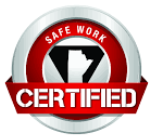
Consumer

The regular members of the Manitoba Motor Dealers Association (MMDA) are the new automobile franchised dealers. Our associate members are the companies that supply services and products to the dealers. While we are not a consumer advocacy group, we will try to help resolve issues, or answer questions. After all, when the customers are happy, so are the dealers!
New Rules for Motor Vehicle Advertising and Information Disclosure Come into Force June 1, 2015.
On June 1, 2015, the New Motor Vehicle Advertising and Information Disclosure Legislation came into force.

Dealership Complaints
If you have a concern or issue with a Dealership:
Talk to the dealership first. Begin with the department in question, and if there is still an issue, you can talk to the General Manager or Owner. At this point, you may want to send an email to the General Manager or Owner, outlining the issue, and how you would like to resolve it. By this stage, most issues have been resolved.
Further options if it is a product issue:
- Contact the manufacturer if applicable. Several manufacturers have customer complaint resolution procedures
- Contact the Canadian Motor Vehicle Arbitration Plan (CAMVAP), at 1-800-207-0685 or www.camvap.ca. CAMVAP is a program that allows disputes between consumers and vehicle manufacturers to be resolved through binding arbitration. Disputes about alleged defects in the assembly of a vehicle or implementation of the new vehicle warranty are eligible for arbitration under the CAMVAP program
- CAMVAP is available at no charge to the consumer and can be accessed in all Provinces and Territories in Canada
- CAMVAP is an effective way to settle disputes. An independent and neutral arbitrator is assigned to each dispute and makes a decision that is fair to both the vehicle owner and the vehicle manufacturer
If your issue is still not resolved:
Contact the Consumer Protection Office of Manitoba at 204-945-3800, 1-800-782-0067 or online at here. The Consumer Protection Office administers consumer protection legislation for the province of Manitoba. The statutes include: The Consumer Protection Act and The Business Practices Act. The Consumer Protection Office hears, mediates and investigates consumer-related complaints.
Documentation Fees
Reasons why you may be charged documentation fees:
Documentation fees are charged by the majority of dealers in the province. They vary from dealership to dealership. Some reasons they may be charged are:
1. Preparation of vehicle purchase contract
- Accuracy of contract preparation ensures proper registration of customer’s vehicle by the licensing authorities
2. Preparation and handling of all required paperwork
- Bill of sale and/or lease vehicle contract
- All tax forms, i.e. PST, GST, tire tax
- Safe vehicle forms, as required by provincial authorities
- NVIS form preparation for vehicle registration purposes
- Rebate forms, as required by vehicle manufacturers or financial institutions
- Transfer of ownership documents, as required by the province
- Assist with arranging required Autopac coverage
3. Computer charges
- Eliminates mathematical errors, thereby ensuring accuracy of all contracts
4. Lien checks
- All vehicles are checked to ensure there are no unpaid liens, thereby protecting customers
5. Autopac write-off search
- All vehicles are checked to determine their status, thereby protecting customers
6. Financing & Leasing
- All available sources are shopped
- Best available rates determined on behalf of customers
7. Warranty forms
- All factory or extended service plan documents are accurately prepared and registered with the suppliers
- All terms of warranties and/or service contracts are clearly explained to customers
8. Insurance
- All available credit life, sickness and accident insurance programs are fully explained to customers
- All forms required by insurers are accurately prepared and registered
9. Co-ordinate vehicle deliveries
- Customer vehicles are professionally detailed at time of delivery
10. Dealership follow-up
- All customers are followed-up by both sales and service personnel to ensure total satisfaction
Motor Vehicle Advertising and Information Disclosure
Licensed vehicle dealers must follow provincial laws when advertising and selling vehicles. They must tell you the facts about the vehicle’s history, condition, and pricing so you can make an informed decision before purchasing the vehicle.
Consumer Taxes
Retail Sales Tax Exemptions
There are two categories of customers that would qualify for a retail sales tax exemption. They are non-residents, and Status Indians and Indian Bands. The details for each are listed below.
Please note the term Indian refers to the legal status of a person who is registered as an Indian under the Indian Act.
See the Government of Canada website for further information.
1. Sales to non-residents – PST does not apply on vehicles purchased for out-of-province use by non-residents of Manitoba. The dealer must:
- Either deliver or ship the vehicle outside the province, by common carrier
- Or can deliver the vehicle in Manitoba by issuing an interim registration permit. The permit number must be recorded on the sale invoice
- Or can deliver the vehicle in Manitoba by recording the purchasers’ home province validated license plate number on the sale invoice
2. Sales to Status Indians and Indian Bands – Indians and Indian Bands may purchase vehicles PST-exempt provided:
- The title to the vehicle is transferred on a reserve
- And the purchase documents are signed on a reserve
- And the purchaser takes possession of the motor vehicle on a reserve (the dealer delivers the vehicle or ships it by common carrier F.O.B to the reserve.)
- To qualify for exemption on a lease the Indian must reside on a reserve, in addition to the above conditions
If a Status Indian or Indian Band co-purchases a vehicle with a Non-Status Indian
When a Status Indian purchases a vehicle with a non-Status Indian, RST must be collected on the non-Indian percentage of the total purchase. In this case where there are two purchasers, one status and one non-status, then we would apply RST on 50%.
If the vehicle is purchased by a status Indian but co-signed by a non-status Indian, the transaction is exempt as the tax application is not affected by financing arrangements such as a non-status co-signor.
PLEASE NOTE: Corporations held by Indians or Indian Bands do not qualify for the PST exemption available to Indians.
Retail Sales Tax
How It Applies to Your Vehicle Purchase
Provincial Sales Tax on Vehicles
GST on Sales to Native Canadians
Requirements:
- Customer must be a Status Indian, but is NOT required to reside on a reserve. The rules are the same whether the customer is purchasing or leasing the vehicle
- Legal transfer of ownership must be completed on a reserve
- Native must produce treaty number
- Vendor must maintain proof that delivery was made to a reserve. Suggestions for proof of delivery to reserve and proof of Status of Indian:
- Photocopy his/her picture ID with treaty number
- Have picture taken of person delivering the vehicle and native purchasing the vehicle in front of the band office on the reserve
- Purchase $5.00 worth of gas at closest station to the reserve. Even better if you can purchase gas on the reserve; no tax to pay
- Signature of the purchaser
If a Status Indian or Indian Band co-purchases a vehicle with a Non-Status Indian
With regards to a financial agreement, the GST exemption is based on who is the main purchaser and who is co-signer. If the main purchaser is not Status then the GST must be applied. If the main purchaser is Status then the sale would be GST exempt as long as you follow the normal procedure stated above.
Please note these guidelines are the same for any Urban Reserves as well.
GST INTERPRETATION PHONE LINE:
(for unclear situations) 1-800-959-8287
GST: Registrant vs. Non-Registrant
| GST Registrant | |
| Vehicle purchased for: | $20,000.00 |
| Trade in: | $10,000.00 |
| Dealership charges GST, paid on full amount (5% of $20,000): | $1,000.00 |
| Registrant claims 5% GST on the net amount back from Revenue Canada (5% of $10,000): | $500.00 |
| PST is charged on net difference (7% of $10,000): | $700.00 |
| Non-Registrant | |
| Vehicle purchased for: | $20,000.00 |
| Trade in: | $10,000.00 |
| GST is paid on net difference (5% of $10,000): | $500.00 |
| PST is charged on net difference (7% of 10,000): | $800.00 |
Government of Canada GST/HST and motor vehicles
Leasing vs Financing
If you are shopping for a vehicle in Manitoba and want to know what the difference is between leasing and financing, we wrote this guide for you. The biggest differences between leasing and financing a car have to do with what exactly you pay for, and what responsibilities or obligations you bear. There are some major differences between the two, which will be listed below.
Ownership
- Lease: You don’t own the car; you pay to use it for a fixed period of time. At the end of the term, you either return it or buy it
- Finance: You own the vehicle and get to keep it, use it how you want, for as long as you want, and add any customizations or modifications that you want
Down Payments
- Lease: Usually includes the first month’s payment, a refundable security deposit, down payment, taxes, registration fees, and possibly other fees
- Finance: Usually include the cash price or a down payment, taxes, registration fees, possibly some other fees
Monthly Payments
- Lease: The vast majority of the time, lease payments will be lower than loan (financing) payments because you only pay for the depreciation of the vehicle during the time of the lease, plus interest, rent charges, taxes, and fees
- Finance: Loan payments are usually higher than leasing, because you’re paying for the entire value of the car
Early Termination
- Lease: If you want to end the lease early you will have to pay early termination fees, which usually can cost as much as sticking with the rest of the lease’s term
- Finance: You can sell or trade in the vehicle whenever you want, and the money you make selling it can be used towards paying off the loan
Vehicle Return
- Lease: At the end of the lease’s term, you can choose to return the vehicle and walk away after paying any end-of-lease charges
- Finance: You have the responsibility to sell or trade in the vehicle whenever you want, should you decide you want to buy another one
Depreciation
- Lease: Future value of the car does not affect you as the leaser, but you also do not get any equity from the car
- Finance: The vehicle will depreciate in value, but the equity is yours to use as you want
Customizing
- Lease: Most of the time, the person/business leasing you the car will want the car to be in optimal conditions to re-sell, in case you choose not to buy it yourself once the lease is up. As a result, you will have to remove any and all modifications or customizations by the end of the lease, and pay for any damages or permanent alterations that were caused
- Finance: You own the car, so you can do whatever you want to it with the awareness that it will affect the resale value
Wear & Tear
- Lease: If your car undergoes excessive wear and tear, most leases will require you to pay penalty fees to fix them
- Finance: The only worry for someone with a car loan/financing is how it will affect the resale value
Distance Restrictions
- Lease: Most leases will require you to negotiate an annual limit on how much you can drive the car, and you will incur extra charges if you go over that limit
- Finance: You can drive as often and as far as you want, with the awareness that more kilometers will lower its resale value
Summary
In the end, whether or not you want to lease or finance your car depends on your long-term intentions. If you’re the type of person that likes to have new cars every few years, then leasing makes much more sense financially. However, if you intend to buy a car and use it until it dies then taking out a loan is your better option. In between, it all depends on the level of financial commitment and ownership you prefer to have of your car.
Tips For Purchase
If you sign an “Offer to Purchase” a vehicle, that is a legal contract, and you have bought the vehicle. There is no cooling off period where you have time to change your mind and return the vehicle. Some of the manufacturers will have programs where they will allow you to do this, but this is at their discretion. Also, if you sign an “Offer to Purchase” at one dealership, and then go to another dealership and sign another “Offer to Purchase” you have bought two vehicles!
Most dealerships will request a deposit as the sale gets closer to finalizing. This shows good faith on the consumer’s part. This is not a damage deposit and as such, it is not refundable. It may, however, be subject to return if your financing is turned down, but this should be spelled out on the contract in advance. The same process applies when you are purchasing a house.
Used Car Buying Guide
Check out this free downloadable guide for everything you need to know about buying a used car. Learn how to decide which car is right for you, test drive essentials, how to negotiate a great price and more!
Preparing Your Vehicle for a Road Trip
Road trips are the perfect way to explore this amazing country, but it’s only going to be fun if your vehicle is in good working order and stocked with all the necessities. That’s why we’ve put together these tips to help you make sure that your car is ready for wherever the journey takes you.
10 Tips for First Time Car Buyers
Buying your first car can be very exciting, but it can also be overwhelming with all of the different options you’ll need to choose from and the many decisions you’ll have to make.
This article will help you make some of the basic decisions before you start shopping, to simplify the process and help get you on your way!
A Monthly Safety Checklist for Your Vehicle
Regular vehicle maintenance is an easy way to ensure that your car runs smoothly and efficiently. This handy maintenance list will help you take better care of your vehicle, and keep it running safer, for longer.
Top 10 Ways to Avoid Driver Distractions
Distracted driving can involve more than just using your cell phone. Check out this list of ways to help you stay focused, and safe, behind the wheel.
Consumer Protection Office of Manitoba – Important Tips on Buying a Vehicle
Sales & Dealer Permits
As the regulator, Manitoba Public Insurance (MPI) manages the Dealer’s and Salesperson’s Permit program.
Dealer Permit
A dealer is defined as a person who carries on the business, or holds himself or herself out as carrying on the business, of buying and selling motor vehicles or trailers, as principal or agent.
- Anyone carrying on a business as a dealer must hold a Dealer’s Permit from MPI that is valid for up to five years
- The fee is $600
- Click here to download the Dealer Permit Application
- For more information, see the Dealer Permit Application Checklist
Salesperson’s Permit
The Drivers and Vehicles Act defines a salesperson as “a person employed or otherwise engaged by a dealer to buy and sell motor vehicles or trailers or to negotiate to buy and sell motor vehicles or trailers on the dealer’s behalf.”
- Everyone employed by a dealer, or acting on behalf of a dealer, to buy, sell or negotiate the buying or selling of motor vehicles or trailers must hold a Salesperson’s Permit issued by the registrar (MPI)
- A dealer cannot allow a person to act as a salesperson for him or her unless the person has a valid Salesperson’s Permit in his or her possession that includes the name of the dealer
- A Salesperson’s Permit is valid for up to one year
- The fee is $35 at the time the application or renewal is submitted
Applying for a Salesperson’s Permit
The test can be taken at either of these MPI locations:
- Any MPI Service Centre in the province (with appointment by calling 204-985-7000 to schedule)
- J.W. Zacharias Physical Damage Research building located at 1981 Plessis Road, Winnipeg
You can call the MPI licensing office at 204-985-0920 if you have any questions.
The cost is $25 to write the test.
In summary, to get a Salesperson’s Permit you need to:
- study the MPI Salesperson Handbook (click to download)
- take the Knowledge Test ($25 fee)
- have an up-to-date Criminal Record Check (click here to use Sterling Backcheck)
- complete the Salesperson Permit Application (click to download)
- submit all to MPI and pay the $35.00 fee to apply
For further information call MPI at 204-985-0920 or email [email protected]






